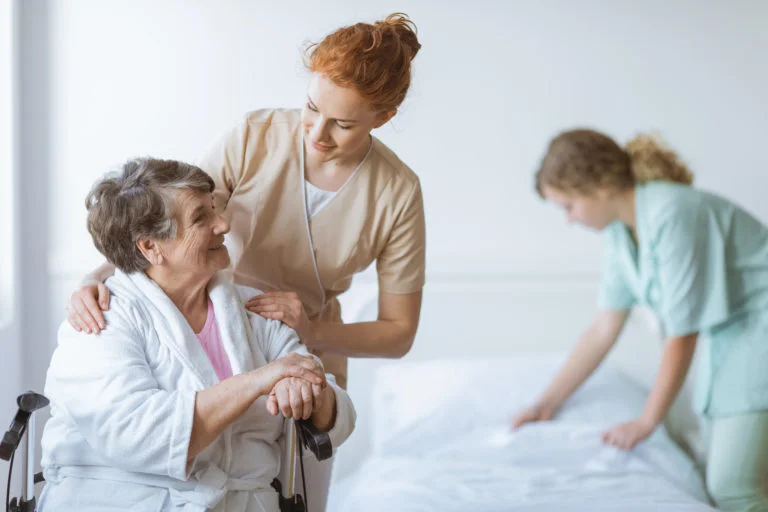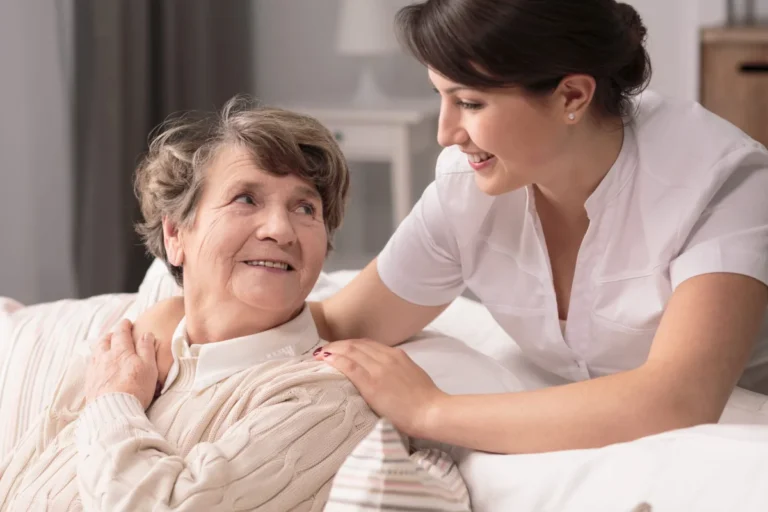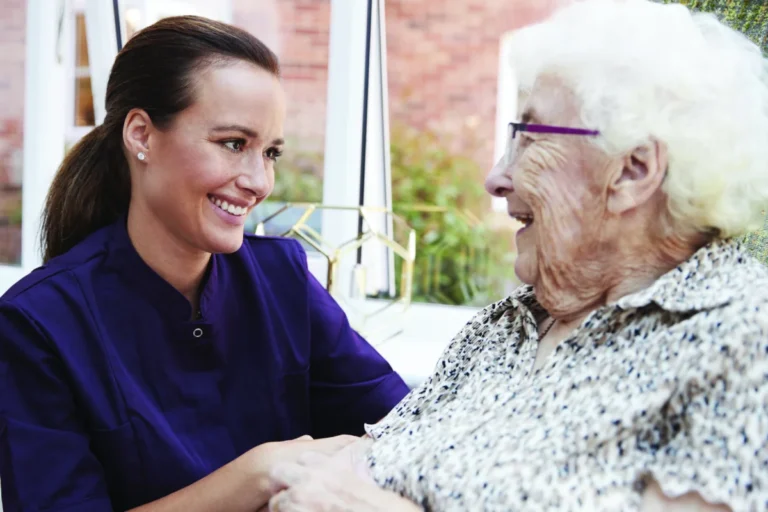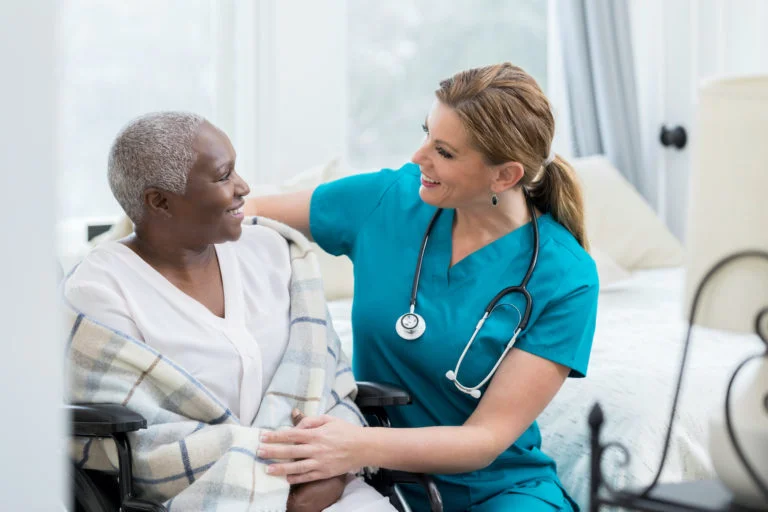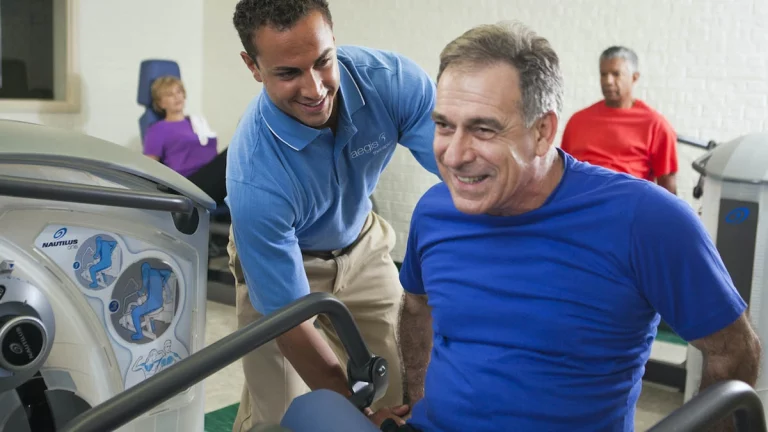If your loved one is dealing with a chronic or severe health diagnosis finding the right kind of support is of the utmost importance. While most are familiar with the basic concept of rehabilitation, it can be a real challenge to know what kind of care your loved one needs – and where you can find it. If someone in your life needs a safe and effective way to recover after surgery, acute illness, stroke or other common health issues, senior rehabilitation therapy could be the solution.
It’ll be easier to help out your loved one when you understand the types and benefits of senior rehabilitation therapy – including the ways it can restore functionality and help your loved one recover from an injury or illness.
THE BASICS OF REHABILITATIVE THERAPY
If you’ve ever had surgery or recovered from a serious injury, you’re probably familiar with at least one kind of rehabilitative therapy – but there are a lot of senior-focused care offerings to learn about. For all of the three core types of rehabilitation therapies – physical therapy, occupational therapy and speech therapy – the goal is to restore lost functionality, reduce the risk to long-term health and get your loved one back to their life as fast as possible.
Physical therapy is focused on strengthening the body, improving flexibility and allowing the affected part of the body to bounce back. It’s most commonly employed after surgery or to aid recovery after a serious injury. For seniors, you’ll often see it used to help them adapt to a hip replacement or to get moving again after a fall: physical therapists design strength training regimens and exercise programs to restore range of motion.
Speech therapy for seniors is often employed for post-stroke rehabilitation. It helps affected seniors rebuild the brain pathways that control speech – but it can be used to treat any neurodegenerative disorder affecting speech, swallowing or other related health issues.
At Tutera Senior Living, our rehabilitation and extended stay communities understand that it is important that different therapies are frequently used in combination with one another. For post-stroke or post-surgical recovery, a senior may need physical therapy, speech therapy, and the last type we’ll examine today – occupational therapy. What is occupational therapy? It can mean many things – but in this context, occupational therapy is all about finding ways to help seniors safely navigate their daily lives, adapt to health challenges and remain independent.
FINDING THE RIGHT REHABILITATION FACILITY
After you’ve become familiar with the most common therapeutic techniques you’ll find in communities around the country, you’ll want to start thinking about how you’ll evaluate a particular senior living community, rehabilitation center or skilled nursing facility. Here are a few tips and important things to think about as you explore the best options for the senior in your life:
- PAY THEM A VISIT.
Looking around for reviews and data about a particular community or skilled nursing facility on the internet before your visit serves many useful purposes. If nothing else, you’ll have a better idea of what factors matter most when choosing the right option for your loved one. But it’s no replacement for laying your own eyes on the community, talking to the caregivers and forming your own opinion.
- WHAT ABOUT COMMUNICATION?
How does community leadership and staff communicate with you? Are they open and honest about their clinical capabilities? If they dismiss your concerns or ask you to sign before you’re totally sure, that’s a serious red flag. At Tiffany Springs Senior Living Community, a rehabilitation and extended stay community in Tiffany Springs, Mo., the team works in partnership with family members and medical team members to create a personalized care plan for each resident. Family members are kept up-to-date and invited to take part in person, as their time allows.
- HOW DO THEY MEASURE SUCCESS?
There are all sorts of accreditations and certifying boards for senior care. Take a closer look at the organizations behind the community ratings. The Centers for Medicare and Medicaid Services and American Health Care Association are two trustworthy accreditors to ask about.
- CONSIDER THE CONDITIONS.
Think about how it would actually be to live in a room there for days or weeks. Are the surroundings comfortable? What about the amenities? Some communities offer more creature comforts and amenities designed to make your or your loved one’s stay a little easier. For example, offering consistent daily dining and a barbershop or salon allows seniors to stay on-site and focus on recovery.
- WHAT KIND OF ACCOMMODATIONS ARE THERE?
How do seniors in the community live? Are they in private apartments, semi-private suites or fully shared rooms? There isn’t necessarily a best option – the right one for you or your loved one depends on the particular clinical requirements and level of attention you require. Some communities, like Tiffany Springs, offer scheduled tours for potential residents and family members.
- ALWAYS USE COMMON SENSE.
When there are so many options, your gut can be your best guide in deciding what is best for you or your loved one. After you’ve visited the care providers in your area, take the time to speak with your loved ones and reflect on your feelings. Ultimately, if it doesn’t feel right to you, trust yourself.
SENIOR-FOCUSED REHABILITATION IS HERE
We hope that our guide to senior rehabilitation has helped you in your search for the care your loved one truly needs. We know you’re sure to have more questions. Even if your loved one doesn’t receive care through one of our communities, we want to be a resource you can rely on.
At Tiffany Springs Senior Living Community and all of Tutera Senior Living, our rehab and recovery care patients receive an individualized care plan to ensure their needs are met. Our experienced team understands how to motivate our residents and how to help shape a healthier future.
To learn more about rehab care and where it is offered at the Tutera Senior Living communities, please contact us today at 877-988-8372.



